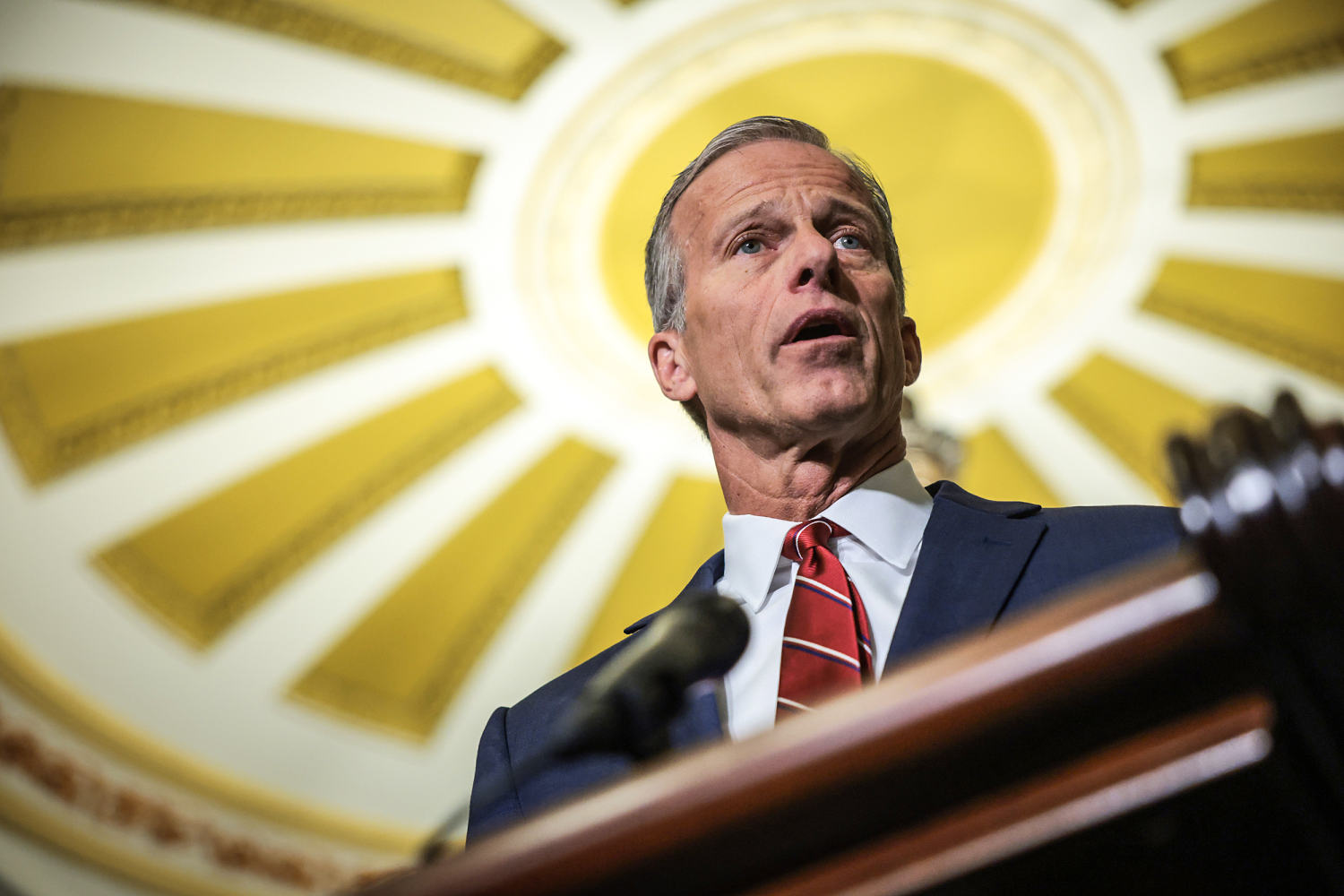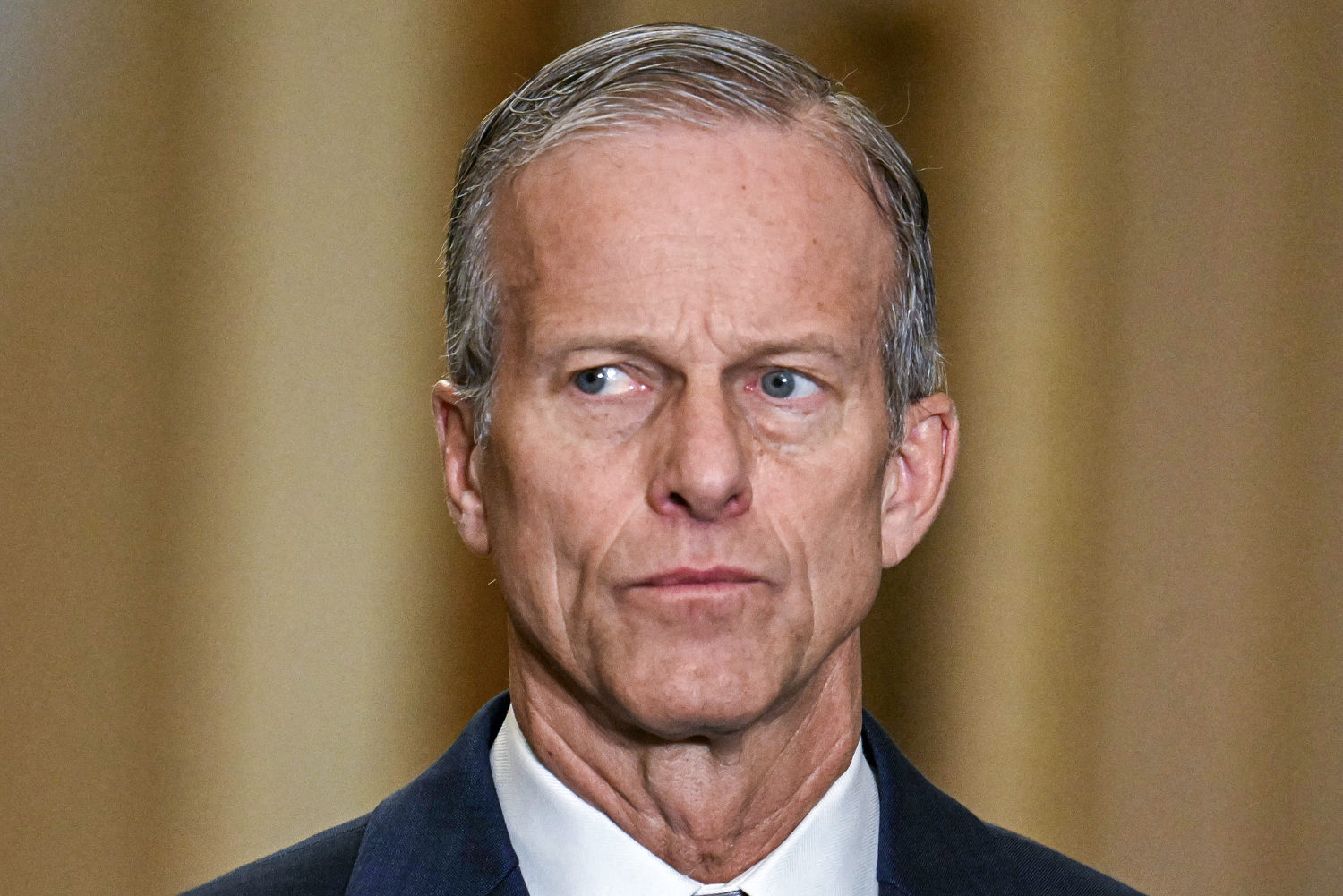Senate Republicans are hoping to vote on a budget resolution this week that would pave the way for President Trump’s “big, beautiful bill” encompassing tax cuts, border security and energy extraction.
Senators say the resolution calls for far fewer budget cuts to offset the cost of desired tax cuts than the analogous bill passed in February by the House, setting up a fight between the chambers about how much the legislation could add to the deficit.
The House and Senate will eventually need to agree to the same budget resolution in order to use the reconciliation process that avoids the Senate filibuster and allows a party-line vote.
But the messy business of making individual spending cuts could be delayed until later in the year by having a much lower target in the Senate budget resolution that will then be sent to the House.
“I think we will vote on the resolution this week. I lobbied hard for it, and I think [Senate Majority Leader John] Thune is going to do it. I don’t think we gain anything by waiting, and this is just a baby step,” Sen. John Kennedy (R-La.), a member of the Budget Committee, told reporters Tuesday.
Sen. Thom Tillis (R-N.C.), a member of the tax-writing Finance Committee, said the goal was to have a vote by Saturday.
“It’s up in the air. I mean, that’s the goal. But there’s a lot of things to be sorted out to make that happen — by Saturday,” he said.
There is more than a trillion dollars’ worth of daylight between the House budget resolution and the resolution under consideration by the Senate.
The House bill called for $4.5 trillion in tax cuts and $1.5 trillion in spending cuts, with a goal of $2 trillion in total spending reductions. Much of that is supposed to come from Medicaid.
The Senate bill sets a spending cut floor of just $3 billion.
“My understanding is that there’s going to be two radically different instructions in the same resolution, with two very different numbers: a trillion — a trillion and half— to the House and $3 billion for the Senate,” Sen. Josh Hawley (R-Mo.), who has opposed cuts to federal health care programs, told reporters Tuesday.
Hawley said he hadn’t yet seen any bill text and that senators still “need to figure out exactly how this thing is structured.”
Budget resolutions are precursors to the final reconciliation bills that have become the norm in recent years for delivering both Democratic and Republican agendas. They give instructions to committees about how much the final bill will need to cut but can have different targets, a point Sen. John Hoeven (R-N.D.) stressed Tuesday.
“We’ll have different instructions in the Senate than they have in the House. You don’t have to have the same committee instructions,” he said.
One major unknown in the reconciliation process so far has been the opinion of the Senate parliamentarian regarding Senate Republicans’ preferred accounting assumption for the bill, known as the “current policy baseline.”
Working from that baseline would allow Republicans to compel the official legislative scoring bodies — the Congressional Budget Office (CBO) and Joint Committee on Taxation (JCT) — to ignore the deficit effects of extending the tax cuts that are expiring at the end of this year.
Democrats have slammed the assumption as “magic math,” and even some Republicans have disparaged it, calling it intellectually fraudulent.
Opinion pieces from the think tank world have proliferated in recent weeks, with one op-ed by former Treasury Secretary Larry Summers calling it “unprecedented in the 50 years since the CBO was formed.”
Kennedy said the decision from the parliamentarian has come in, though he wouldn’t say what it was.
“I know the answer to that, ...













